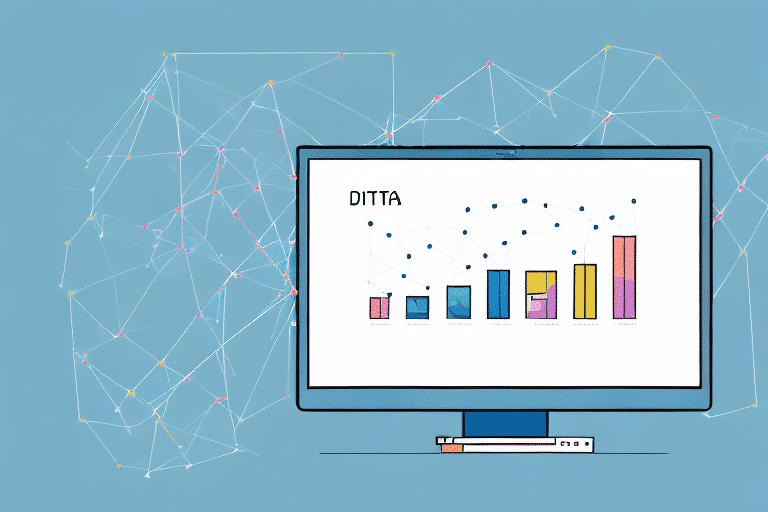How to Connect, Optimize, and Manage LSO for Veeqo
If you're a Veeqo user, you may have come across the term LSO before. LSO, or Local Shared Objects, is a type of web storage that allows websites to store data on a user's computer. It's an important aspect of Veeqo's functionality, as it can help improve performance and save user preferences. In this article, we'll take a detailed look at LSO, why it's important for Veeqo users, and how to effectively connect, optimize, and manage it for better performance.
Understanding LSO: What It Is and Its Importance for Veeqo Users
LSO operates similarly to cookies but offers more persistent and larger storage capabilities. Unlike cookies, which store small amounts of data in the browser, LSOs store data directly on the user's computer, ensuring accessibility even after the browser is closed. This durability makes LSOs a more reliable storage option for essential user data.
Benefits of Using LSO in Veeqo
- Enhanced User Experience: LSOs save user preferences such as layouts and filters, eliminating the need for repetitive manual settings each time a user logs in.
- Improved Performance: By caching data like images and search results, LSOs contribute to faster load times and smoother interactions within the Veeqo platform.
- Data Recovery: In cases of unexpected shutdowns or system crashes, LSOs can preserve critical data, allowing users to recover their work seamlessly.
- User Behavior Tracking: Analyzing LSO data helps Veeqo understand user interactions, enabling informed decisions for platform enhancements.
For more insights on web storage and its impact on user experience, refer to the Mozilla Developer Network's guide on Web Storage API.
Step-by-Step Guide to Connecting LSO in Veeqo
Connecting LSO to your Veeqo account is a straightforward process. Follow the steps below to enable LSO:
- Log in to your Veeqo account and navigate to the Settings menu.
- Select Local Shared Object from the left-hand sidebar.
- Toggle the switch to On to enable LSO.
- Refresh your browser to apply the changes.
After completing these steps, LSO will be active for your account. To confirm, you can check the Storage tab in your browser's developer tools.
Optimizing LSO for Enhanced Veeqo Performance
Maximizing the benefits of LSO involves implementing optimization strategies that ensure efficient data storage and retrieval. Here are some effective techniques:
Basic Optimization Techniques
- Regular Cache Clearing: Periodically clear your browser's cache and cookies to prevent data clutter and ensure LSOs function correctly.
- Data Minimization: Limit the amount of data stored in LSOs by deleting old or unused data, which can enhance overall performance.
- Avoid Private Browsing: Frequent use of private browsing modes can disable LSO storage, leading to slower load times and reduced functionality.
Advanced Optimization Techniques
- Customize LSO Storage: Use browser extensions or APIs to adjust the amount of data stored based on your specific needs.
- Refine Caching Methods: Strategically cache frequently accessed data in LSOs while using cookies for less critical information to balance performance and storage.
- Implement LSO Encryption: Enhance data security by encrypting LSOs, protecting sensitive information from unauthorized access.
For detailed strategies on web performance optimization, visit the Web Performance Resources.
Managing LSO: Best Practices and Benefits
Regular management of your LSO data can lead to multiple advantages, ensuring a smooth and secure Veeqo experience:
Benefits of Regular LSO Management
- Enhanced Performance: Organized LSO data ensures faster data retrieval and application responsiveness.
- Reduced Clutter: Eliminating unnecessary data frees up storage space and streamlines operations.
- Data Privacy and Security: Regularly updating and managing LSOs helps comply with data protection regulations and safeguards sensitive information.
How to Effectively Manage Your LSO Data
- Use browser extensions to monitor and control LSO data.
- Regularly delete outdated or irrelevant data to maintain optimal storage levels.
- Encrypt sensitive data stored in LSOs to enhance security measures.
Learn more about data management practices from the UK Information Commissioner's Office.
Troubleshooting Common LSO Issues in Veeqo
Encountering problems with LSOs can hinder your Veeqo experience. Here are common issues and solutions:
Common Problems and Solutions
- Data Not Saving: Clear your browser's cache and cookies to reset LSO storage.
- Slow Load Times: Check your browser's privacy settings and ensure that third-party cookies are not blocked.
- Persistent Issues: Contact Veeqo Support for specialized assistance.
Additional troubleshooting steps include updating your browser to the latest version and disabling extensions that may interfere with LSO functionality.
Ensuring Data Privacy and Security with LSO in Veeqo
Protecting your data stored via LSOs is crucial. Implement the following strategies to maintain data privacy and security:
Privacy and Security Best Practices
- Use Secure Browser Extensions: Utilize extensions that offer encryption and data access controls for LSOs.
- Regular Data Review: Periodically assess and delete unnecessary LSO data to minimize stored sensitive information.
- Encrypt Sensitive Information: Implement encryption for LSOs that store critical data like payment details.
Be aware of potential risks such as tracking and unauthorized access. To mitigate these risks, consider using private browsing modes selectively and regularly clearing your browser data. For comprehensive data privacy guidelines, refer to the EU-U.S. Privacy Shield Framework.
Integrating LSO with Other Tools and Platforms in Veeqo
When integrating LSOs with additional tools or platforms within Veeqo, adhere to these best practices to ensure seamless functionality:
Best Practices for Integration
- Consent Mechanisms: Implement appropriate user consent protocols for data collection, storage, and sharing.
- Limit Third-Party Access: Set restrictions on third-party tools' access to your LSO data through browser settings or platform-specific configurations.
- Regularly Update Integrations: Periodically review and update LSO settings and integrations to align with current goals and privacy policies.
Ensure compatibility between LSOs and other tools by conducting thorough testing of integrations. For guidance on integrating web storage with analytics tools, visit the Google Analytics Help Center.
Future Trends in LSO and Implications for Veeqo Users
As web storage technologies evolve, Veeqo users should stay informed about emerging trends that may influence LSO usage:
Upcoming Trends in LSO
- Enhanced Data Privacy: Stricter regulations and advanced privacy measures are expected to shape how LSOs are used and managed.
- Improved Encryption Techniques: Innovations in encryption will make securing LSO data more efficient and accessible.
- Standardized Implementations: Increased collaboration among browser vendors may lead to more uniform LSO implementations, ensuring consistent user experiences across different platforms.
By staying updated on these trends, Veeqo users can proactively adapt their LSO strategies to maintain optimal performance and compliance. For the latest developments in web storage technologies, refer to W3C's Web standards.
Conclusion
LSO is a vital component of Veeqo's functionality, enhancing performance and preserving user preferences. By following the guidelines outlined in this article, Veeqo users can effectively connect, optimize, and manage their LSO data to achieve superior performance and a more personalized user experience. Remember to regularly review and update your LSO settings, implement robust security measures, and stay informed about future advancements in LSO technologies to ensure you remain ahead in optimizing your Veeqo account.






















